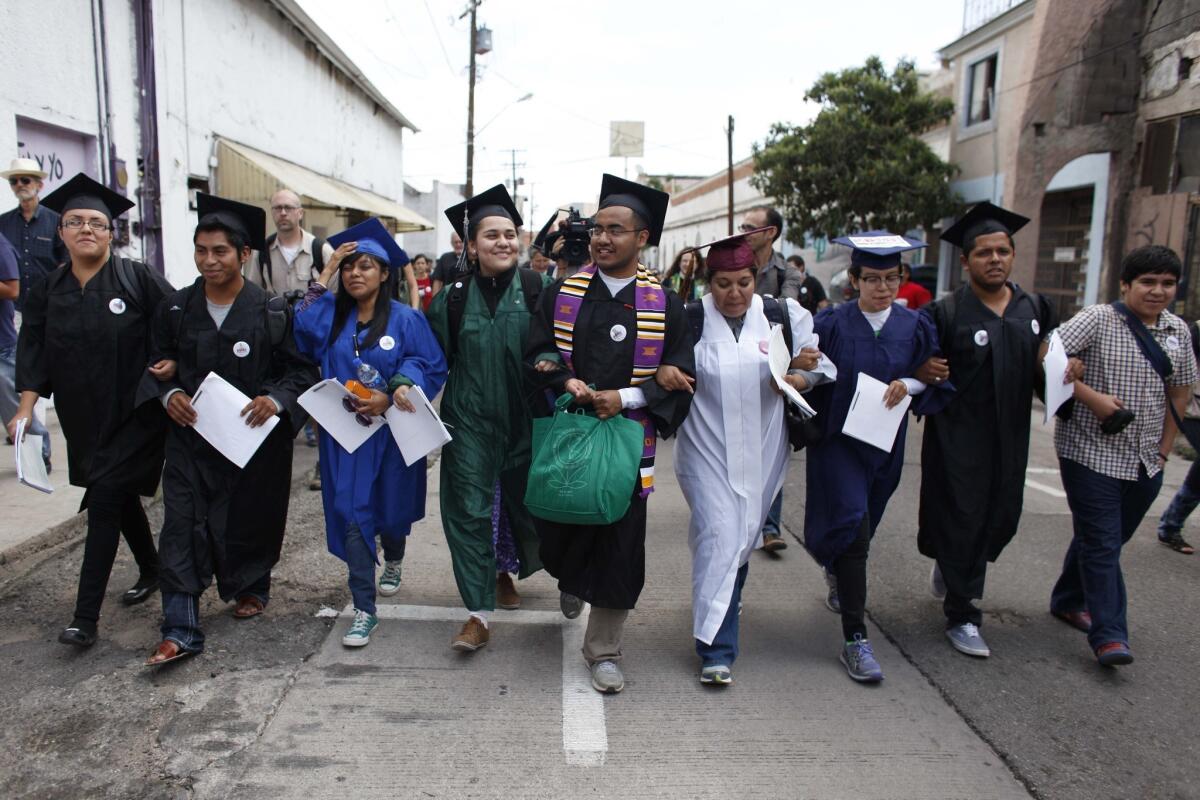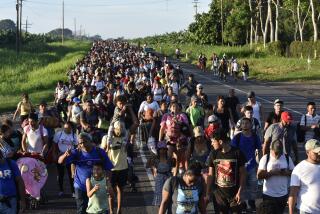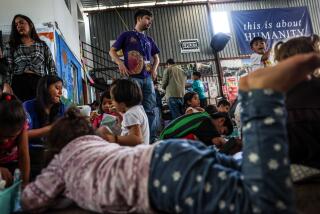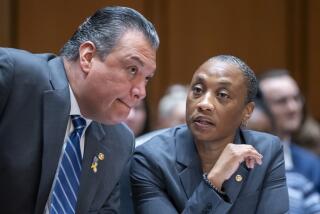‘Dreamers’ stage action in Laredo, Texas

Months after a group of undocumented youths raised in the United States known as the “Dream 9” crossed the border into Arizona from Mexico demanding legal entrance, another larger group is planning to stage a similar protest at the border crossing in Laredo, Texas, on Monday.
Mohammad Abdollahi, an organizer with the National Immigrant Youth Alliance, which coordinated the protest and works with 33 advocacy groups in 27 states, explained the latest protest in an interview with the Los Angeles Times.
What is the goal of the action on Monday?
The goal is for them to cross the border at the port of entry, and they’ll probably be situated in the line for about an hour or so. They’re going to walk toward the port of entry, bridge No. 1, and ask to be able to return to their families. They’re going to be asking for humanitarian parole, which is usually reserved for people with extreme medical conditions. But our argument is that Dreamers should be considered that way as well.
How is this different from what protesters did in Arizona in July?
For the first action in Arizona, we had three of our folks, organizers, who went back to Mexico on purpose to connect with folks, they connected with six folks — three of them had been previously deported and three others left on their own — and they all nine of them walked to the border port of entry in Nogales and asked to come home. The folks that are crossing now, we put a form out on the Internet saying if you meet these criteria, let us know and that’s how we met them. A lot of these people have given up and said, “Let me put this option out of my head.” Hopefully we are giving them another option. Our belief at the alliance is that the 1.7 million people who have been deported since Obama took office should have another way to come home. It’s pretty much the same in terms of what they will be doing now. This action, we have 31 total participants, and it’s a much more diverse group — they come from about 13 different states in the U.S. The youngest is 13, the oldest is 33. They’re going to ask the administration to grant them the discretion to return home.
How long have they been in Mexico?
They’ve all been gone at least nine months; the longest has been gone 10 years. All of them came to the U.S. before the age of 16, so they’re all, essentially, “Dreamers.”
Why focus on young undocumented people, the “Dreamers”?
A lot of us came into organizing because of the bill [the Dream Act] to legalize people who are that age or younger, the “Dreamers.” We all see ourselves as American. We’re working with “Dreamers” on this project to bring them home.
Have they tried to build lives in Mexico?
Some of them have actually tried to attend university in Mexico and been told they would have to redo high school because they went to school in the United States, and they don’t have the requirements, all because they’ve grown up here in the U.S.
Where in Mexico did the protesters come from this time?
They came from all parts — Cancun, Tijuana, Mexicali.
Where are you now?
I’m in Laredo right now, about 10 blocks from the border.
The town on the other side of the border with Laredo, Nuevo Laredo, has seen extreme violence in recent years. Are you at all concerned about protesters gathering there for this?
We had a lot of concern about their safety, and we still do. That goes back to their cases — a lot of these folks grew up in the U.S., and the Mexico they remember is not what it is today. We’ve been making sure nobody is traveling at night, nobody is traveling alone. We’ve been training at a shelter that’s on lockdown — nobody’s going in or out, and we’ve been very careful, especially because of all the media attention. They have this road trip mentality, and it’s because they grew up in the U.S. We’re very concerned about safety issues. The reality is for these folks, every part of Mexico is dangerous. Every day all across the border there’s folks crossing. After we did the action in Nogales, Ariz., one of the guys said that when he was at the Burger King [in Mexico before crossing] somebody was trying to kidnap him. The reality is for “Dreamer” folks, as soon as they open their mouths, people realize they’re American and target them because they think they have money.
So why cross in Laredo, Texas?
It’s just a matter of where we have the most support — organizations we work closely with, getting support getting people released into the U.S. One of the other factors that went into it was Rep. [Henry] Cuellar. The last time we had the Dream Act, he was very hesitant to support it. We met with his office on Friday, and they were kind of frazzled what to do — they didn’t really have a response to us. We need to really get champions on board on this. We’ve approached them before, and they’ve told us to wait for immigration reform. But what do you tell people whose relatives are dying? It’s different when it’s people in your district. What will they do? We’ll see. We know this issue affects a lot of people in our community and it’s not going to go away.
ALSO:
U.S. bridges crumble as repair funds fall short
No negligence in deaths of 19 Arizona firefighters, report says
Krokodil, more dangerous than heroin, possibly surfaces in Arizona
Follow L.A. Times National on Twitter
More to Read
Sign up for Essential California
The most important California stories and recommendations in your inbox every morning.
You may occasionally receive promotional content from the Los Angeles Times.










